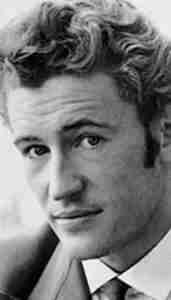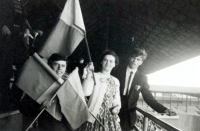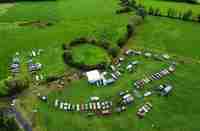A hellraiser and an acting genius, charismatic Peter O’Toole knew he had a loyal friend in Roscommon man Frank Kelly….
By Paul D’Alton
The rock star Sting, then married to Irish actress Frances Tomelty, had rented a house in nearby Roundstone. Sting would roar through the town, burly bodyguard riding pillion, on a vast motorbike on his way to see O’Toole out at the house
 It was a stunning, sun-drenched day in Clifden, Connemara and I was travelling along the world famous Sky Road, one of the most scenic
It was a stunning, sun-drenched day in Clifden, Connemara and I was travelling along the world famous Sky Road, one of the most scenic
spots in the whole of Ireland, to drop by my Roscommon-born uncle Frank Kelly’s home (my mother’s eldest brother), from whose sitting
room on a clear day you had a glorious coastal vista stretching as far south as Co. Clare.
Entering the sitting room, where there was a low mezzanine sitting area overlooking the sea, to my shock I spotted a man in a tweed suit lying face down unconscious and prostate on the carpet.
“Who’s that?” I asked Uncle Frank, gesturing to the comatose figure.
“Oh, that’s only Peter,” my uncle replied.
“Peter who?” I asked back, knowing full well.
“O’Toole,” said Frank.
“And what’s wrong with him?” I enquired.
“Three bottles of Baileys. He’ll be fine in a bit,” my teetotal uncle replied, seemingly well used to such occurrences.
And sure enough, as we sat by the fire in my uncle’s study, the tall, gangly figure of acting legend Peter O’Toole duly emerged, looking remarkably spruce, asking where his chauffeur was and saying to us in his languid, theatrical voice: “I’m heading home, darlings, see you all later my loves”.
In no small way, this story begins in Church Street, Roscommon town where my uncle Frank was born to my grandparents Edward ‘Ned’ Kelly and wife Elizabeth. Ned was the owner of a large construction business which built the CBS school in town, half of Goff Street, renovated the Irish College in Spiddal in the Connemara Gaeltacht, built the church in Rossaveal, also in south Connemara, and many other projects throughout the West.
His eldest son Frank, as one of the company’s directors, had travelled to Clifden to oversee the building of the town’s hospital. There he was to meet a local woman and marry her in the late 1950s, and some years later at a social function he met and immediately hit it off with a fledgling young actor by the name of Peter O’Toole, who famously went on to become Lawrence of Arabia and more infamously one of Hollywood’s greatest hellraisers.
Uncle Frank and Peter remained lifelong best friends, as was, indeed, another long-standing family friend and frequent visitor to Connemara, Michael D Higgins, now An Uachtarain na H’Eireann. At one time, the three men were their own personal Troika over the many glorious years they and us shared together in the West, before circumstances changed, although the close ties remained unbroken. Peter died in 2013 and his best friend, my uncle Frank, passed away a
few years later. Just a short while before Frank’s sad death, Michael D joined the family celebration for Frank’s 90th birthday at the Abbey Hotel in town.
But we remember the fun times, how could we not? At one time, my former wife asked Frank did he ever go on a film set with Peter. “Oh, many times,” he told her.
“What was it like?” she replied.
 “Well, one time we flew to Toronto,” Frank who then, in the early 1970s, like Peter himself was drinking heavily, went on. “I remember getting on the plane in Dublin with Peter and three months later we arrived back in Dublin. What happened in between those three months Peter and I have no idea”.
“Well, one time we flew to Toronto,” Frank who then, in the early 1970s, like Peter himself was drinking heavily, went on. “I remember getting on the plane in Dublin with Peter and three months later we arrived back in Dublin. What happened in between those three months Peter and I have no idea”.
I was privileged, because of my family’s close ties to the O’Tooles, to have played a bit part in what was an uproarious, outlandish time. Inevitably, top of the list are incidents which can now be added to the litany of O’Toole’s hellraising, drinking war stories.
Perhaps the best was the time in the late ’70s — it must have been after major portions of his intestine and stomach had been surgically removed in 1976 after years of alcohol abuse — when O’Toole had fallen off the wagon, something that happened not infrequently.
He’d spent the day in Mannion’s Bar, a family-owned town hostelry. After the closing-time rendition of Amrhán na bhFiann, and with everyone well sauced, O’Toole was invited to a nearby house for afters.
And it was there, surrounded by a few men and women then treading the ‘dark side’ of Irish Republicanism, that O’Toole jumped up on a chair, glass in hand, and roared: “Right, you f*****g culchies, please stand for God Save The Queen!”
O’Toole, a fierce Irish patriot, had meant it in jest. But bedlam erupted in the cramped kitchen, bodhráns and bodies flying. O’Toole was, genuinely, lucky not to be disembowelled for a second time, non-surgically.
One day, sitting in the off-licence of my uncle’s hotel in the town, Peter suddenly announced: “Darlings, I have a surprise for you. Look!”
So we all turned and stared and there, parked on the corner of Main Street, was a gleaming black London taxi. O’Toole had bought it in London and had it brought over. Its purchase was, as I was about to discover, the very mark of the man: at times, intensely, almost pathologically private; at others, a ribald, daring attention-seeker.
So off along the coastal boreens we went for a spin: a cousin driving, O’Toole and me behind the plexiglass in the back. Astonished tourists and locals stared at a scene almost straight out of the cult film comedy, Withnail & I: a famous Hollywood star, Lawrence of Arabia himself, waving regally as we trundled up the Sky Road and a massive joint being passed between us.
“But, Peter,’ I said between pulls (I was only 17 at the time), ‘I thought you were supposed to be here inf*****gcognito!”
“Oh my dear,” he grinned, “F**k them! It will give the poor dears a thrill for a bit,” before letting rip his wild, cackling laugh.
At the Eyrephort house he owned a 20-minute drive from Clifden town, O’Toole had installed in the grounds a greenhouse. A local fella acted as his odd jobs man and one day, standing with O’Toole in the greenhouse, he innocently asked: “Jesus, Peter, they’re mighty plants. What kind are they?”
“Ah,” O’Toole replied, “they are very precious non-flowering, non-fruiting tomato plants”.
So when O’Toole went back to London for a few weeks, his trusty handyman wanted to take special care of Peter’s precious ‘tomato plants’ and had fertilised and watered them so well that they had grown to a height of nearly 20ft.
So on his return and to his total horror, O’Toole had to have what were in fact cannabis plants quickly cut down so that the gardaí wouldn’t spot them.
Needless to say, the harvest from that culling of the best of the crop resulted in the entire town literally having shopping bags full of weed for weeks, months after. We were delighted but O’Toole, the poor man, was terrified. I remember him roaring up at the house: “I could end up in f*****g jail, you f*****s”, as locals helped out and hid the stuff like something out of Whiskey Galore.
Somehow, perhaps inevitably, we found ourselves at the centre of bizarre dramas. Such as the time the rock star Sting, then married to Irish actress Frances Tomelty, had rented a house in nearby Roundstone. Sting would roar through the town, burly bodyguard riding pillion, on a vast motorbike on his way to see O’Toole out at the house.
But that summer’s holiday didn’t last for long. After only a few weeks, on a day I’ll never forget, Sting barged breathless through the door of my uncle Frank’s bar at lunchtime. “I have to go! I have to
go! Where’s everybody? Where’s Peter?” he shouted.
As the kerfuffle ensued in the adjoining off-licence, I returned to serving customers. Then, a few minutes later, Sting with bodyguard roared off, never to be seen in these parts again.
Later that day, O’Toole arrived in and claimed that Sting had received death threats from the Provisional IRA and terrified – this wasn’t long after the H-Block protest and black coffins still adorned some lampposts in town – he upped and fled back to England.
We all thought it was a terrible drama until I asked O’Toole, grinning from ear to ear, if they had really threatened to kill Sting. “Did they f**k! But those f*****s down in Roundstone couldn’t stand him so they ran him out!”
Our laughter crackled through the building. “IRA my arse!” O’Toole roared. Poor Sting.
O’Toole loved the life out here in the West: although he knew nothing about horses, and was nearly decapitated when his Connemara stallion ‘Dr Slattery’ half dragged him across the show field at the world famous Connemara Pony show as we died laughing watching the scene, he turned up every year in spotless, horsey tweed attire, pretending he knew a mare from a foal.
And when ‘Dr Slattery’ failed to win the top prize one year, O’Toole tired of the stallion and that was the last we heard of it.
Still, to quote from the Mary Hopkin’s song: “Those were the days, my friend, we thought they’d never end”…and they still bring a wry and heartfelt smile to my face.






